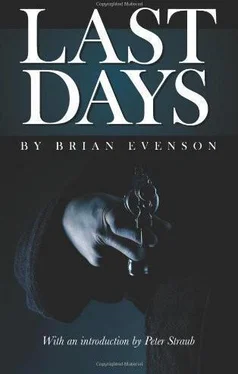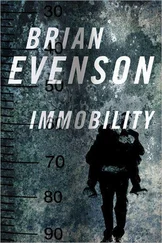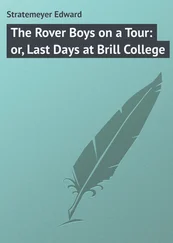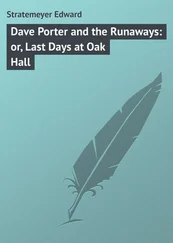"It's very late," said the guard.
"He'll see me," said Kline. "He told me to come."
And indeed, when the other guard returned, he was admitted.
He went with the other guard up the stairs to Borchert's room. The guard knocked. When Borchert called back, the guard opened the door and allowed Kline to enter alone.
"Well," said Borchert. "Truth is important to you after all, Mr. Kline."
He was sitting in his chair, a gun in his hand gripped awkwardly with his remaining fingers. "Please stay right there, Mr. Kline," he said.
"It's not loaded," said Kline.
"No?" said Borchert. "What makes you think that?"
"The gun you gave me wasn't," said Kline.
"No, it wasn't," said Borchert, "but wasn't that perhaps because I was giving it to you?"
Kline didn't answer.
"Care to tell me what you know?" asked Borchert.
"You're planning to kill Aline," said Kline.
"And?"
"And planning to make it look like I killed him."
"You've been most obliging in that regard," said Borchert. "You've acted your role nicely. A documented penchant for violence. A certain obsession with Aline, dead or alive. You're only wrong in one particular, that being that I've already killed Aline."
"When?"
"Not long after you last left. For a limbless man he put up quite a fight."
"Why?"
"Ah," said Borchert. "Mr. Kline, I doubt if I can make you understand."
"Try me."
" Try me , Mr. Kline? How colloquial of you. It was a matter of belief. Aline and I disagreed on certain particulars, questions of belief. Either he or I had to be done away with for the good of the faith in a way that would leave the survivor blameless. Otherwise there would have been a schism. Naturally, I, in my position, preferred that he be done away with rather than I."
"You were enemies."
"Not at all. Each of us admired the other. It was simply an expedient political move, Mr. Kline. It had to be done."
"Why me?"
"Why you, Mr. Kline? Simply because you were there, and because God had touched you with His grace, had chosen you by removing your hand. You'll of course be rewarded in heaven for your role in all this. Whether you'll be rewarded in this life, though, is entirely another matter."
"Perhaps I should go," said Kline.
"A good question, Mr. Kline. Do I kill you or do I let you go? Hmmm? What do you think, Mr. Kline? Shall I let you go? Shall we flip a coin?"
Kline did not answer.
"No coin?" asked Borchert. "Do you care to express an opinion?"
"I'd like to go," said Kline.
"Of course you would," said Borchert. "And so you shall. Today shall be a day for mercy, not justice. Perhaps, with a little luck, you'll even be able to make it out the gate and past the guards to the so-called freedom of the outside world."
Kline turned toward the door.
"But then again," he heard from behind him, "surely justice must temper mercy, Mr. Kline. Am I right? So perhaps you'd care to leave a little something we can remember you by."
Kline stood still. And then, without turning around, he reached slowly for the door handle.
"I wouldn't do that if I were you," said Borchert. "I hate to shoot a man in the back."
Kline stopped, turned to face him.
"What do you want?" he asked.
"You know exactly what I want," said Borchert, his eye steady. "Flesh for knowledge."
"No," said Kline.
"You told the guard you'd come up here for an amputation," said Borchert. "There's a cleaver on the counter. The same cleaver you used on my finger. Where the hand is gone, the arm shall follow. Otherwise I shoot you. It makes honestly no difference to me, Mr. Kline. You've accomplished your purpose. Technically, you're no longer needed."
Kline started slowly for the back of the room. Borchert watched him go, pushing at the floor with his foot to turn his chair around.
The cleaver was there, imbedded in the butcher's block.
"Go ahead, Mr. Kline. Take it by the cronge and tug it free."
He took the cleaver by the handle. "What's to stop me from killing you?" he asked.
"Do you really know how to throw a cleaver, Mr. Kline? Where does one learn such skills? Some sort of Vocational and Technical school? Can you imagine you'd be able to hit me, let alone hit me so that the blade itself will stick? And even if you did, I imagine I'd be able to squeeze off a shot beforehand-"
"Assuming the gun is loaded."
"Assuming the gun is loaded," agreed Borchert affably. "A shot that would bring the guards running and that would get you killed. So, Mr. Kline, you'd be trading the possibility of killing me for your own life. Is that really what you want to do? No? Now be a good boy and cut off your arm."

He turned on the burner in the countertop, waited for it to heat up. The cleaver seemed sharp enough, though he realized it might have some difficulty cutting through bone. If he hit the joint just right it probably wouldn't matter, though he shouldn't forget he was cutting left-handed; did he have sufficient force in his left hand to cut all the way through in a single blow?
He lined the cleaver along the crease of his elbow, found the flesh to run almost from one end of the blade to the other. He would have to hit it exactly right.
In his mind's eye, the cleaver is already coming swiftly down, beginning to bite through skin and flesh and bone. He will be washed over with pain and will stagger, but before going down he must remember to thrust the new end of his arm against the burner to cauterize it, so that he doesn't bleed to death. And then, if he is still standing, he may manage to stagger from the room and down the stairs and eventually out of the compound altogether, where, limping, feverish, in pain, he will make his way out into the lone and dreary world.
And this, he realizes, is only the best possible outcome. In all probability it will be much worse. The hatchet will strike wrong and he will have to strike a second time. He will wooze and fall before cauterizing the wound and then lie on the floor bleeding to death from the wound. The guards will catch him at the gate and kill him. Or even worse, all will go well, the arm coming smoothly off, but Borchert, smiling, will say "Very good, Mr. Kline. But why stop there? What shall we cut off next?"
He raises the cleaver high. His whole life is waiting for him. He only needs to bring the cleaver down for it to begin.
You've only got one finger left,
And it's pointing toward the door.
— Beck, "Lord Only Knows"
The second time was worse than the first, both because he already knew how it would feel and because of how much thicker an elbow is than a wrist. Still, he managed it, left-handed, despite Borchert's pistol trained at his head. First he carefully tied a tourniquet around the upper arm and then brought the cleaver down hard, chopping all the way through on the first try, and then he thrust the stump against the burner. The stump sizzled and smoked, his vision starting to go. He shook his head and took two steps toward Borchert, and then collapsed.
After that, it became more complicated. He came conscious to find Borchert kneeling beside him, still aiming the pistol, grinning eagerly down.
"And what," Borchert asked, eyes glittering, "shall we cut off next?"
He struck Borchert as hard as he could in the throat and the man fell back, gasping. Kline dragged his way on top of him, managing to get to Borchert's gun in time to jam a thumb into the guard behind its trigger. He bore down with his full weight, working his way slowly up Borchert's body while the latter kept squeezing the gun's trigger, trying to tear off his thumb. A moment later, Kline broke Borchert's nose with his forehead.
Читать дальше













